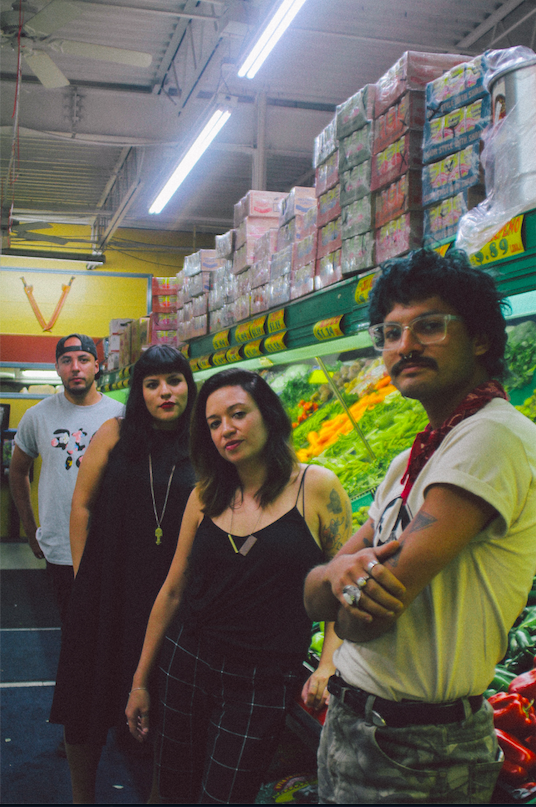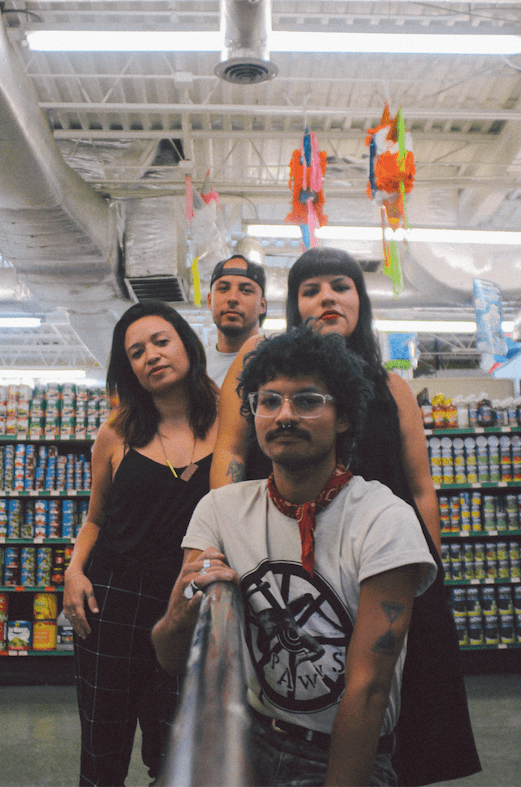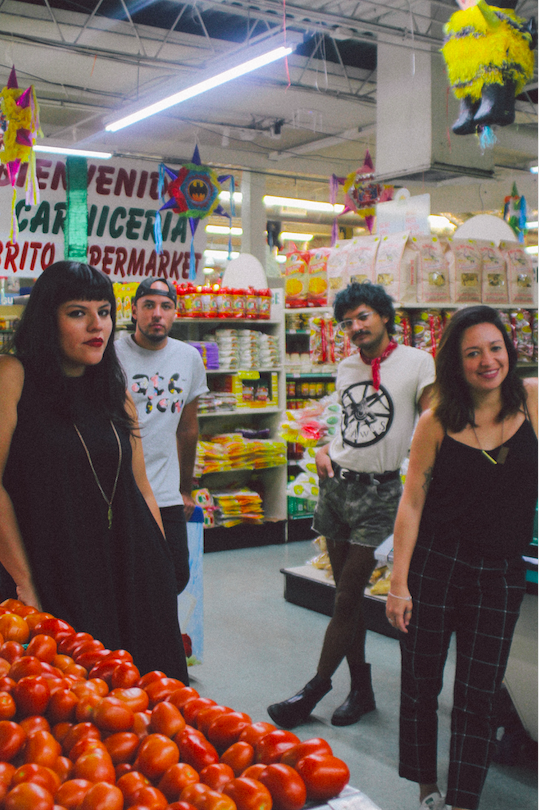Georgia ranks no. 19 on the list of states with the highest Latino populations. Anyone who lives in metro Atlanta especially will confirm that Pew Research Center statistic without hesitation. There are thriving Latino communities everywhere, and there are tons of Latinx folks living in the city proper. But for the nightlife-loving sector, the options are few and far between. You’ll find plenty of salsa and Spanish pop after dark outside the perimeter — OTP, as Atlantans say. But ITP — inside the perimeter — there’s next to nothing.
That’s where La Choloteca: Ley de Latinx comes in.
La Choloteca offers a safe(r), inclusive, and accessible space to celebrate the Latinx community, one with an emphasis on honoring indigenous and African roots and decolonizing club culture. It’s a party that announces the Latinx community’s presence at stadium-sized high volume.
“It’s funny because [the party is] progressive, but at the same time, it’s actually going back to our roots,” says La Choloteca co-founder Monica Campana. “The Spanish people brought this shame, in a way, with religion. Our actual culture, our indigenous people, did not have all of these different rules. This all comes from colonization. So we’re actually trying to go back to that.”
Video courtesy of Wussy Magazine
On September 15, 2016, La Choloteca: Ley de Latinx debuted at The Star Bar, an underground music staple in ATL’s Little Five Points area. By midnight, Campana happily reports, it was packed to the gills. The crowd danced to electrocumbia, old school reggaeton, salsa, and Spanish rock and pop; DJ Santiago Paramo gleefully spun the likes of Ray Barretto and Celia Cruz on vinyl. “I feel like we were all about to cry the whole night because we could not believe that people actually wanted to do this,” she says.
Campana left her native Peru for the U.S. at 15. In high school, she says, the “freak bench” was her go-to spot. But even among the punks and other outsiders, she never felt completely accepted. “I could never break away from being who I am: brown, short, and Peruvian. There was always a sense of shame that came with that,” Campana says.
“I could never break away from being who I am: brown, short, and Peruvian.”
It wasn’t until earlier this year that a roommate (a first-generation American born to Nigerian parents) helped her recognize that she’d been actively trying to assimilate since she was a teen. And that sense of shame, she says, had never left her.
But considering Campana’s résumé, any sort of self-doubt comes as a surprise. In 2009, she co-founded Living Walls, a nonprofit street art and urbanism conference held annually in the city. With Living Walls, Campana flipped the Atlanta arts scene on its head, bringing much-needed dialogue and attention to the city’s creative communities.
La Choloteca, however, is her first venture into nightlife. After throwing a house party centered on Latinx music with two Peruvian friends, Josephine Figueroa, co-founder of Atlanta’s Somos Sur Art Collective, and her cousin Kenneth Figueroa, the trio decided they had to recreate that vibe on a larger scale. The same night, they met Randall Ruiz, aka DJ Florista. He was quick to hop on board.

Ruiz probably has the most party-pushing experience among them. He started fueling dance parties at weddings and quinceañeras at 16 and hasn’t stopped scooping up gigs since, mixing everything from pop to hip-hop to salsa in his sets. Still, the lack of Latinx parties in Atlanta is a void he’s seen firsthand.
“These bigger cities, like New York, Miami, Los Angeles, that have a big Latinx communities, the histories of those cities have been shaped by Latinx people for decades. Like New York, you have salsa; Miami, the whole Cuban community; Los Angeles, the Mexican community. But Atlanta doesn’t really have that as part of its history,” Ruiz says.
As Ruiz suggests, the exponential growth is recent. The demographics of Gwinnett County, where Ruiz grew up, have considerably shifted since the last generation. The Hispanic population of the city of Norcross, for one, was close to 40 percent just six years ago, according to U.S. Census data.
In the early stages of La Choloteca plotting, Campana says, Ruiz brought her and Josephine Figueroa to a club on Buford Highway, part of which runs through Norcross.
“You go to a salsa bar or a Latin American party or whatever, and there’s an expectation that you have to look a certain way and you have to dress up…There’s also a lot of machismo and a lot of sexism,” she says. “And we are trying to break away from all of that. We want to make this something for everybody. You can wear whatever the fuck you want to wear. We’re including all of our friends, the ones that are straight, the ones that are gay, the ones that are queer — it doesn’t matter.”

Before La Choloteca, Campana says, the only context in which she could reminisce about the songs she grew up with was with her close friend and Living Walls co-founder, Laura Patricia Calle. Last year, Calle passed away. Campana has since established a grant in her honor.
“I feel like this is the time where we’re really writing our history for the city.”
“I started a grant that opens up a whole new world of opportunities for public art projects, and new themes and conversations where I’m actually actively trying to talk about cultural diversity and gender equality and feminism and immigrants’ rights,” she says. “My friend was all of that, and I had her and then I lost her, and it was like losing that thing.”
Campana isn’t exactly on the same page as her family about certain issues, either. She loves them and appreciates their encouragement of her pursuits in the arts, she stresses, but says they fight about race, religion, and the fact that at 33, she’s still not married.
“Latinx people, we come from different cultures and countries, but at the end of the day, if you see yourself as an immigrant or your parents are immigrants, it’s hard,” Campana says. “I guess we’re especially trying to make this space for young people that do not understand what it is to grow up in a Latin American country, or the ones that did and are trying to get away from it.”
While struggling with the loss of Calle, Campana gradually began to seek out connections with other Latinxs, and she found that in her Choloteca collaborators.

No doubt, that first throwdown — and every subsequent edition — will help foster new relationships between other Latinx Atlantans who would never have had the chance to meet. As it grows, the party could also play a major role in establishing a massive platform for the Latinx community. Campana and Ruiz are both hoping for that. As Ruiz puts it, “I feel like this is the time where we’re really writing our history for the city.”




